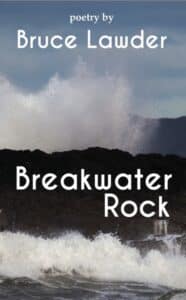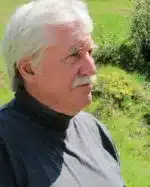
Bruce Lawder writes on the memory of place, the place of memory.
It must be a phenomenon of age, but as I’ve gotten older, my visits to my hometown of New Orleans have become less frequent. At the same time, my emotional ties have become stronger, evidenced by the growing number of New Orleans-themed Facebook groups I’ve joined.
Most of the reason for less frequent visits is family. My childhood was highlighted by the sheer number of relatives, entirely from my mother’s large family, who lived there. Now they’re gone, scattered to cities, towns, and cemeteries all over the South. I have a single cousin left living in New Orleans.
No, you can’t go home again, except in your memory. Poet Bruce Lawder discovered that when he visited the town where he grew up. The place is still there, but it presents a sense of dislocation. Most things have changed; even those that seem the same aren’t quite the way you remember them. (I sympathize; the backyard of the house where I grew up has shrunken dramatically from what I remember as a child.)
Lawder did what poets do; he wrote poems. His newest collection, Breakwater Rock: Poems, is comprised mostly of poems he wrote before and after his hometown visit. He’s “drawn homewards,” he writes in the opening poem, “Little Collage,” “once more to walk the place.” And walk the place he does.
He hears the autumn music. He remembers the family drama, akin to King Lear, with its “raging on the heath.” He recalls digging a hole. He walks the beach, watching “the dark / waves peaking pour/their stone-white light / on the shelved rock” (some things don’t change). He continues to walk, remembering the stars he saw, the birds, the sounds at night, the ashes from burials in the Sound. And he feels the approach of winter, including his own.
Remembering often and perhaps usually involves experiencing the sense of loss. Family and friends have passed on; houses have been replaced or remodeled out of recognition; schools and other familiar childhood buildings have disappeared. And Lawder mourns.
Lamentation

what was not mine to mourn
and I mourn what was.
I mourn
what I held in my hands
and let fall through my fingers.
I mourn
the morning as well as the night
and the nothing between.
I mourn
the light I mistook for love
and the darkness as well.
I mourn
what I fail to remember
and I mourn what I do.
I mourn
the words that died in the womb of your mouth
and the words that did not.
I mourn
what no one knows and more
I mourn the body that is ash and air.

Bruce Lawder
Lawder previously published five poetry collections, including Shorelines, and Vers le Vers, a collection of essays on poetry. He has also published stories, plays, and articles on art for the catalogues of several major European museums. Computer Time, his most recent play, was staged at the American Theatre of Actors in 2022 in 2022. An American by birth, he lives in France and Switzerland.
Remembering a place and your childhood with it and mourning the loss of the familiar is about understanding and acceptance. As Breakwater Rock so amply shows, you, too, will one day pass, becoming a memory, a family story, a retelling of an old joke, a name and date on a genealogy chart, a fallen leaf carried by the river.
Related:
Bruce Lawder: Prose Poems, (Very) Short Fiction, or Both?
Photo by Torodd Ottestad, Creative Commons, via Flickr. Post by Glynn Young.
How to Read a Poem uses images like the mouse, the hive, the switch (from the Billy Collins poem)—to guide readers into new ways of understanding poems. Anthology included.
“I require all our incoming poetry students—in the MFA I direct—to buy and read this book.”
—Jeanetta Calhoun Mish
- Finding Poetry in an Anselm Kiefer Art Exhibition - November 25, 2025
- Poets and Poems: Autumn Williams and “Clouds on the Ground” - November 20, 2025
- The Manuscript of “The Waste Land” by T.S. Eliot - November 18, 2025


Maureen says
Lovely review, Glynn.